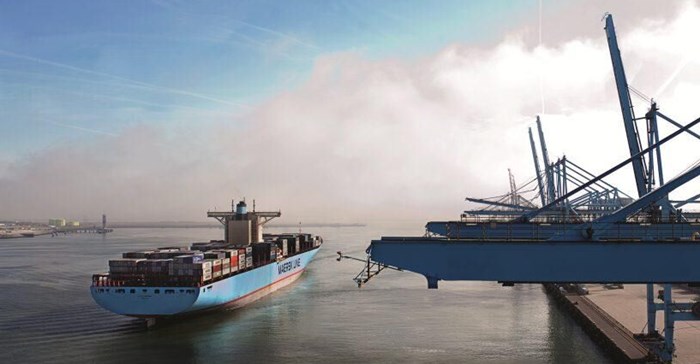The rapid increase of the rate at which reefer cargo, also know as perishable cargo, is exported from South Africa to the Middle and Far East regions, is slowly overtaking South Africa's 'traditional' reefer trade lane to Europe. This has resulted in a noteworthy shift in trade lanes and is creating an opportunity for local exporters exploring these emerging markets.

Dirk Hoffmann
According to Dirk Hoffmann, MD of Safmarine - a member of the Maersk Group - and one of the world's leading ocean transporters of perishable cargo, reefer exports to the Middle East have increased in volume by over 20% year to date, with the Far East route experiencing a 10% increase. "These increases can be attributed to a faster population growth and more disposable income in the region."
He says that, in particular, he has seen a significant increase in the amount of citrus and apples being exported to these regions. "In terms of citrus exports, we are at the peak of the citrus export season. Citrus exports are a combined 50% of the total perishable export volume from South Africa."
Hoffmann explains that, in the past, reefer cargo to the Middle and Far East has been very low yielding. "Now that this type of export is growing, the dynamics of the South Africa/Middle Far East trade lanes are evolving in terms of diversity of cargo. It is interesting to note how the demand for this type of cargo has changed over the recent past."
The new route can present some challenges
He says that exploring new trade routes are indeed a viable opportunity for South African fruit exporters. "This new route can, however, present challenges to exporters, including cultural differences and longer transit times. When it comes to these challenges, it is important to understand how the various complexities impact on doing business in the region.
"These challenges are among the largest hurdles in today's international marketplace, as different countries have different values and ways of conducting business, and if the legal complexities, culture and language of a country is not known, it could potentially jeopardise the business."
Technologically advanced and temperature sensitive containers
Hoffmann says that in order for South Africa's fruit producers to meet the growing demand for fruit in the East, exporters need to partner with reliable specialists who make use of technologically advanced and temperature sensitive containers. "These partners should also possess the necessary knowledge and experience to facilitate the entire supply chain process."
He says that Maersk Group recently purchased 20,000 reefer containers for global distribution which will facilitate exporters exploring this route, as it will help to meet the growing demand for reefer shipments to the East and enable suppliers to expand into new markets and capitalise on new opportunities.
"These containers offer various advantages, including the provision of an unbroken cold chain from producer to supermarket. Although the route from South Africa to the East is further than from South Africa to Europe, and the fruit stays in transit for a much longer period of time, the containers ensure that fruit remains fresh on arrival," concludes Hoffmann.
































